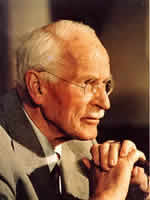Centre for Psychoanalytic Studies at Essex
What is the Centre like?
Founded in 1993, the Centre for Psychoanalytic Studies at Essex is internationally recognised as one of the leading centres for work that focuses on the role of the unconscious mind in mental health as well as in culture and society generally. Its work is deeply grounded on knowledge deriving from clinical practice, to which the highest standards of academic thinking are then applied. The Centre enjoys an outstanding reputation for research and has consistently achieved the highest rating in the UK's Research Assessment Exercises, most recently in 2008. It is also distinctive in its provision of a pluralistic and non-sectarian environment in which various depth psychological models of the unconscious (especially Freudian, Jungian, and British Object Relations) are critically examined. Centre programmes make use of experiential components and clinically-oriented teaching. Many members of staff are clinicians as well as scholars. And strong links are maintained with the local NHS and other services, institutions, and centres of excellence.
The Centre shares in the international character of the University. At any one time there are over 120 students, from many countries including Brazil, Bulgaria, Canada, Chile, China, Egypt, Finland, France, Germany, Greece, India, Ireland, Israel, Italy, Japan, South Korea, Mexico, Portugal, Romania, Rwanda, Sweden, Taiwan, Turkey, the United States, and Zimbabwe, as well as the UK. These students come from a wide variety of professional and educational backgrounds and are of all ages. Members of teaching staff comprise the Director, Professors of Psychoanalysis, Professors of Analytical Psychology, Senior Lecturers, Honorary Senior Lecturers, Lecturers, and several Fellows including academics and qualified adult and/or child psychoanalytic psychotherapists and group analysts. Located within the best Faculty of Social Sciences in the UK, the Centre is surrounded by strong departments that support its work. At Essex you will gain the opportunity to work with and be taught by senior clinicians and world-class scholars.
The Centre's teaching programmes draw on its research excellence, as well as on the clinical expertise of many of its members of staff, and include the MA in Psychoanalytic Studies and MA in Jungian and Post-Jungian Studies and various collaborative courses. There are collaborations with other institutions, as in the MA in Refugee Care, with its unique psychosocial focus, which is offered jointly with the Tavistock and Portmann NHS Foundation Trust; with other departments at Essex, as in the interdisciplinary MA in Management and Organisational Dynamics (with the Essex Business School), MA in Philosophy and Psychoanalysis (with Philosophy), and MA in Myth, Literature, and the Unconscious (with Literature, Film, and Theatre Studies); and with employers, as in the Foundation Degree/BA in Therapeutic Communication and Therapeutic Organizations, aimed at those working with children and young people with special educational, social, and emotional needs. The Centre also has a thriving international community of about 50 students researching for a PhD or Professional Doctorate. In addition the Centre offers experiential days and residential short courses on working with groups. The Centre's research and teaching are thus both theoretical and applied and have local, national, and international impact on the psychotherapy professions, on other professional fields such as refugee care, business management, and education, and on a wide range of academic disciplines, especially in the humanities and social sciences.
What is 'Psychoanalytic Studies'?
At Essex 'psychoanalytic studies' refers to both the clinical study of psychoanalysis in any of its varieties and to the psychoanalytic understanding of phenomena outside the consulting room, in both clinical and non-clinical settings. Whilst the Centre's programmes do not provide a clinical training in psychoanalysis, Jungian analysis, or other psychoanalytic psychotherapies, they do deepen the understanding of helping professionals in a variety of fields.
Psychoanalytic study is a new field, which analyses the root, structure, historical development, philosophical orientations, and problems of psychoanalysis, and explores the profound influence of psychoanalysis on modern culture. It also contributes to understanding of modern culture and, in a more specialist way, to understanding the importance of relationship in therapeutic processes and institutions.
By introducing the unconscious dimension, psychoanalysis has much to offer to therapeutic practice, in both mental health and other fields, and also to scholarly and scientific disciplines, such as anthropology, economics, history, literature, management, philosophy, political science, psychology and sociology. Psychoanalysis has also contributed to understanding current issues that foment controversy, such as the sense of social disintegration, violence, criminality, changing gender identities and relationships, religiosity, ethical conundrums pressed upon us by scientific and medical advances, and indeed the driving momentum of scientific and technological change itself.
How will I be supported throughout my studies at Essex?
-
The Centre offers a lively and friendly learning environment and its taught programmes have consistently achieved excellent student satisfaction ratings;
-
Most teaching takes place in relatively small seminars and fora, with a focus on group discussion;
-
Students of the Centre on taught programmes also have a personal tutor and a dissertation supervisor, who advise them about their work on an individual basis and help them to develop improved capacities for structured independent study;
-
The wide variety of cultural, professional, and educational backgrounds of our students further enriches the learning environment.
What are the key features of the courses in the Centre for Psychoanalytic Studies at Essex?
The Centre offers programmes at both undergraduate and postgraduate level, which
-
Are designed for both clinical and non-clinical students, each aspect supporting the other;
-
Provide a solid foundation of knowledge as well as cutting-edge insights;
-
Foster both academic rigour and creative thinking;
-
Deepen understanding of unconscious factors influencing mental health as well as culture and society more broadly;
-
Enrich healthcare workers' and others' knowledge of the emotional and other unconscious aspects of their relationships with clients, with colleagues, and with their workplace;
-
Can be studied full-time or part-time, with some modules available individually for Continuing Professional Development (CPD);
-
Are specially timetabled to make attendance manageable for those who are in employment or are living at a distance.
What learning resources are available?
-
Students will be taught by internationally acclaimed clinicians and academics;
-
The University's Albert Sloman Library is well stocked with books, journals, electronic resources, and major archives relevant to the Centre's work. In addition the Centre has its own library of specialist books and journals;
-
The Centre's strong connections to the local NHS and other organisations facilitate placements and institutional observations.


.jpg)

 (Opracowane na podstawie przedmowy Jerzego Prokopiuka do pracy: "Odpowiedzi Hiobowi" Carla Gustava Junga, Wyd. "Ethos", Warszawa 1995)
(Opracowane na podstawie przedmowy Jerzego Prokopiuka do pracy: "Odpowiedzi Hiobowi" Carla Gustava Junga, Wyd. "Ethos", Warszawa 1995)